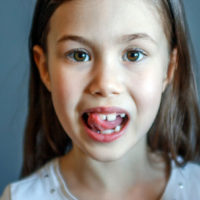Search results
-

Children’s Understanding of Depression
Depression is a mental illness that affects children and especially adolescents, however little is known about how children and adolescents understand depression. Gaining an understanding of how children perceive illness can facilitate effective communication with health professionals and children’s active involvement in decision-making about their health.
Read more -

Young people’s lived experience of Obsessive Compulsive Disorder
How do young people really experience living with Obsessive Compulsive Disorder (OCD)? What are young people’s understanding of their development of OCD and is there a link to trauma? How do other people’s reactions to the OCD affect the young people? How do young people really feel about the help for OCD in the United Kingdom?
Read more -

Working memory deficits may compromise cognitive flexibility in OCD
Obsessive compulsive disorder (OCD) is characterised by recurrent intrusive thoughts and/or behaviours. These traits imply deficits in cognitive flexibility in affected patients, but it is unclear at what stage of information processing these deficits might emerge. To address this question, Nicole Wolff and colleagues asked 25 adolescents with OCD and 25 matched healthy controls to complete a computer-based task switching paradigm.
Read more -

Cognitive flexibility in OCD: challenging the paradigm
Data from a new study by Nicole Wolff and colleagues suggest that cognitive flexibility can be better in children with obsessive-compulsive disorder (OCD) than typically developing controls.
Read more -

Parenting practices that support the sensation-seeking child
Sensation-seeking is a personality trait of people who go after varied, novel, complex and intense situations and experiences. Sensation-seekers are even willing to take risks in the pursuit of such experiences. Until now, research has primarily focused on how sensation seeking relates to the development of undesirable behaviours, including drug and alcohol abuse, high risk sexual behaviours (like unprotected sex or having multiple partners), gambling and delinquency.
Read more -

Access to evidence-based behavioural interventions needs improving for children affected by Tics
In 2016, Chris Hollis and colleagues compiled a Practitioner Review for the Journal of Child Psychology and Psychiatry evaluating the most effective and well-supported interventions for children and young people affected by Tourette syndrome and chronic tic disorder. Here, they discuss the key findings from their systematic review, and highlight that children and young people affected by tics require improved access to evidence-based behavioural interventions.
Read more -

Sensory-action binding: a new facet of Gilles de la Tourette Syndrome?
Gilles de la Tourette syndrome (GTS) is a neuropsychiatric disorder characterised by a persistent motor or vocal tic present for >1 year.
Read more -

Parent-led group CBT training can reduce anxiety in children
A brief psychological intervention in which parents and carers are supported in applying cognitive behavioural therapy (CBT) principles in their child’s day-to-day life can lead to good outcomes for child anxiety disorders, according to new research.
Read more -

Effects of development must be considered when examining interpretation bias in children with anxiety
Anxiety is often treated using interventions that target interpretation bias, but the link between interpretation bias and anxiety in children is unclear. Now, in a Research Review published in the Journal of Child Psychology and Psychiatry, Suzannah Stuijfzand and colleagues have performed a meta-analysis of the literature to establish whether this association in children really does exist.
Read more -

Routine screening is needed to identify language problems in children with ADHD
In 2017, Emma Sciberras and colleagues conducted a Research Review for the Journal of Child Psychology and Psychiatry to rigorously analyse how common are language problems in children with Attention-Deficit Hyperactivity Disorder. Here, the researchers discuss their main findings and explain why they consider that a screen for language function would be a valuable addition to current ADHD assessments.
Read more
